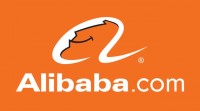Chinese Regulators Rein in Jack Ma’s Alibaba and Ant Group
January 5, 2021
Alibaba founder Jack Ma has long been celebrated in China for his successful entrepreneurship that has made him that country’s richest individual. More recently, however, his troubles with the Chinese government led that country’s media to dub him an “evil capitalist” and “bloodsucking ghost.” Last week, China opened an antitrust probe into Alibaba and is investigating Ant Group, a fintech company Ma spun out of Alibaba. After nixing that company’s IPO, China is now telling Ma to fix its many perceived flaws.
The New York Times reports that, last Thursday, “four regulatory agencies said that officials would meet with Ant to discuss new supervision measures.” The moves against Ma and his empire signals a shift by the Chinese government likely driven by the fact the country has “more billionaires than the United States and India combined … [while] about 600 million of its people earn $150 a month or less.”

The country’s consumption of luxury goods is also predicted to grow almost 50 percent compared with that in 2019, while housing is too expensive for most first-time buyers and U.S. college graduates “face limited white-collar job prospects and low wages.”
Where Ma was once feted by the public, one article that called for him to be lynched was “liked 122,000 times [on Weibo] … and read more than 100,000 times on … WeChat.” NYT notes that, “the Communist Party seems more than willing to tap into that resentment … This could mean trouble ahead for entrepreneurs and private businesses under Xi Jinping.”
“You can either have absolute control or you can have a dynamic, innovative economy,” said Primavera Capital Group founder Fred Hu, whose company is an investor in Ant Group. “But it’s doubtful you can have both.”
Ma has “subtly dared the government to punish his defiance,” such as when, in 2003, he created Alipay, “putting his business empire square in the center of the state-controlled world of finance.” At the time, Ma said, “if someone needs to go to jail for Alipay, let it be me.” Regarding Ant, he’s also said, “if the government needs it, I can give it to the government.”
University of Hong Kong business school economist Zhiwu Chen said, “given what has happened, eventually Ant will have to be controlled or even majority owned by the state.”
Elsewhere, NYT reports that, in general, “the Chinese government has begun taking a harder line toward big Internet companies, which have come to wield vast influence over segments of the economy.” Central bank deputy governor Pan Gongsheng “listed off what he said were Ant’s main problems,” including that the company’s corporate governance was “not sound” and that it was “indifferent” to the law, “looked down on compliance requirements and engaged in regulatory arbitrage.”
Chinese regulators ordered Ant to “return to its payment origins … [and] strictly rectify illegal credit, insurance and wealth management financial activities.” They also “ordered Ant to reorganize itself to ensure that it met capital requirements … [although] keeping more money on its books to back its lending activities could crimp Ant’s bottom line.” Ant responded that it would “put together a plan for complying with the new requirements.”
Related:
China’s State Capitalism Collides With Its Technological Ambitions, The Wall Street Journal, 1/2/21

No Comments Yet
You can be the first to comment!
Sorry, comments for this entry are closed at this time.